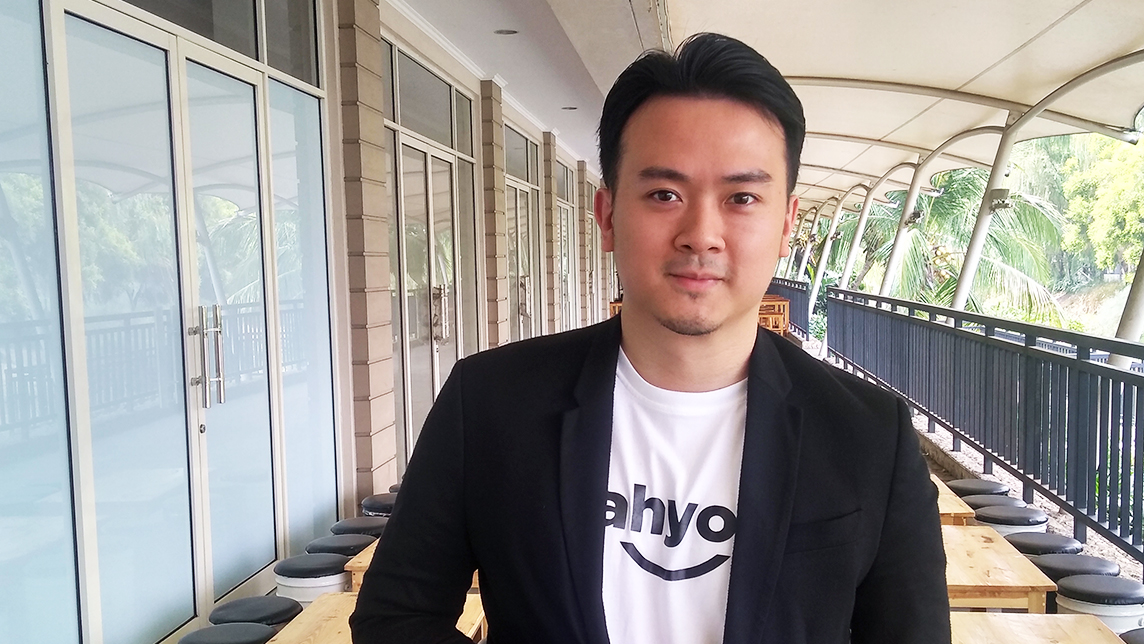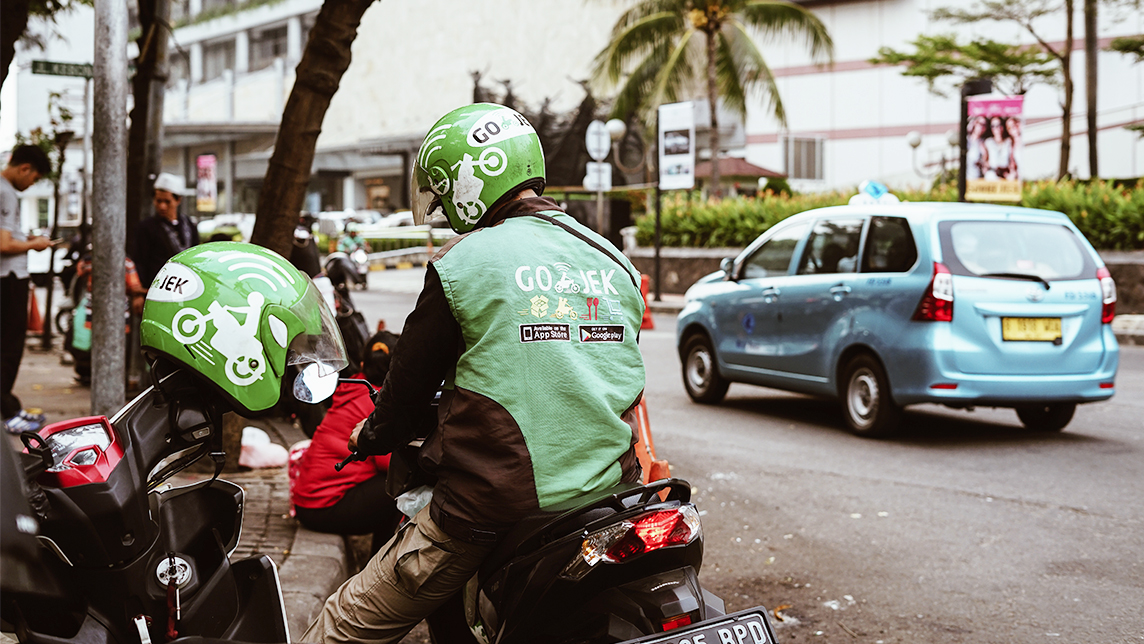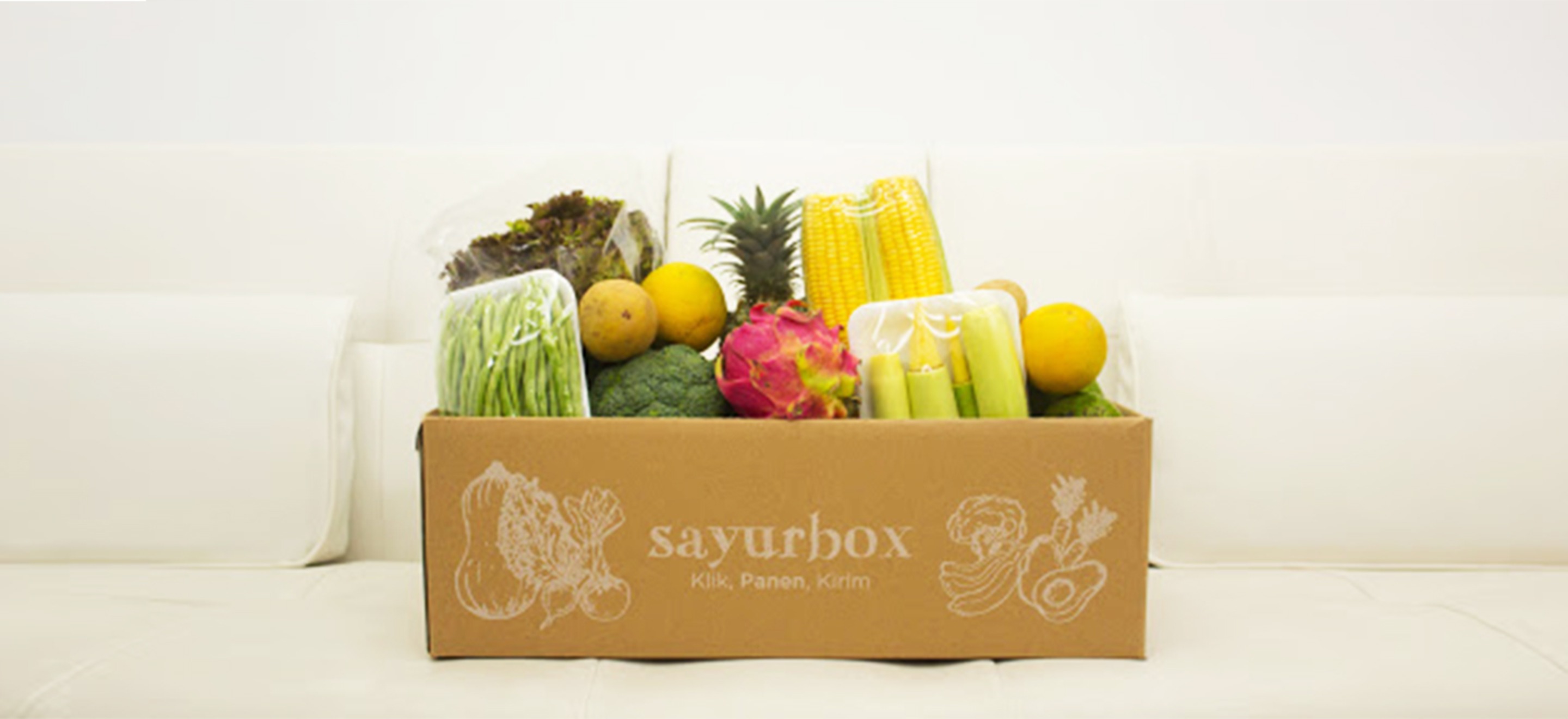Wahyoo, which creates digital solutions for street hawkers in Indonesia, has won an undisclosed amount of seed funding. Agaeti Ventures and Kinesys Group led the deal, with participation from Chapter1 Ventures, SMDV East Ventures and Rentracks.
The funding will go toward the development of Wahyoo's digital solutions, such as a new B2C app and point of sale (POS) system for payments, to help hawkers run their food stalls more efficiently and profitably, CEO and co-founder Peter Shearer told CompassList in an interview. Wahyoo-led partnerships with retailers to sell non-food products to diners will also help increase hawkers' earnings, adding to its efforts to boost Indonesia's street food sector.
Peter, a long-time foodie and culinary entrepreneur, left his high-flying job as co-founder of major Indonesian creative technology group WIR to start Wahyoo in 2018. WIR's award-winning augmented reality developer AR & Co is one of Asia's biggest AR companies, with over 1,000 projects worldwide.
"I've always had a passion for culinary-related businesses," he said. "Before AR, I ran my own catering business, a small restaurant and my own food website."
Many local eateries are one-man bands, or only run with a crew of two to three members, he noted. Besides having to multitask and face constant struggles with limited resources, many stall operators also lack the financial competency to run their businesses profitably. Wahyoo is going to change all that – by taking care of time-consuming tasks such as shopping for supplies, food preparation, payment collection, and bookkeeping.
Multipronged support
Wahyoo's ground-up approach is designed to help traditional street food hawkers, known as "wartegs," which make up the bulk of Indonesia's neighborhood eateries. Wahyoo starts by educating the hawkers about basic food hygiene standards for food preparation and cleanliness. The owners are also taught basic bookkeeping so they can keep records of their business transactions and manage related finances, including simple financial planning.
As they are shorthanded, the food stall owners are often overwhelmed by their daily chores and are unable to focus on improving their operations, even when their businesses have been running well for years. Wahyoo's new POS system, for example, will help them gradually include digital payments in their daily operations, instead of relying on cash and manual banking processes that are time-consuming and prone to bookkeeping errors.
“We can solve this problem of limited resources if we have a system in place,” Peter said.
Wahyoo has also been working with Sayurbox and eFishery to develop a B2B platform where the eatery owners can buy groceries directly from the partner suppliers, who will arrange for the goods to be delivered to the eateries. It complements an existing B2B app that allows hawkers to order directly from FMCG retailers; Wahyoo runs its own warehouse to store these goods before delivering them to the hawkers.
The startup is also planning to add ready-to-cook prepped ingredients that will save even more time and speed up the food preparation process. In return, Wahyoo will earn a small fee as the distributor or middleman for procuring the ready-made ingredients, fresh produce, seafood and other supplies.
The food operators can also earn extra income by collaborating with major brands like Orang Tua Group and Mayora. The neighborhood eateries are good locations for advertisements and act as potential sales channels for the FMCG products by selling the items directly to their customers through the Wahyoo platform and the new B2C app loyalty scheme. The food eateries will earn a percentage of the advertising revenue and commissions from the products sold.
Three passions in one model
Going from advertising campaigns to managing SME restaurants may seem like a big career change. But for Peter, who co-founded the AR development platform at advertising WIR Group, it's simply a matter of combining three passions into one. The creative tech and foodie has finally found a way to add social enterprise to his business model.
“Before AR, I ran my own catering business, a food website, and even a small restaurant,” Peter told CompassList. “I’ve also always wanted to go into social enterprise,” he added, noting that one of his dreams is to start a philanthropic foundation.
He chose the name "Wahyoo" because it is a play on the Indonesian word "wahyu," which means “divine inspiration” or “revelation.” He believes that divine providence is what keeps him going in the business.
“Our faith is like a farmer's, who toils every day believing that the cycle of the weather will help his crops grow,” Peter said. “What matters is for us to work hard, and God will open the way.”
His management and leadership experiences during his 10-year tenure at the WIR Group have helped him to find new ways of developing young talents, especially those in their 20s. It's essential, he said, to motivate staff by giving them the freedom to explore and realize their potential: “They should be treating Wahyoo as a stepping stone… [a place to] learn, work and serve their community.
“For example, I had a member of the field team who is good at graphic design and dreams of opening his own studio. The field work role doesn't include graphic design. So I transferred him to our graphic design team.”
Overcoming challenges
Peter also cautions against rushing to develop ideas or building products – validation is the key to ensure that a startup isn't doomed before it even starts.
“In simple terms, you need to find out if people like the product, if they're willing to pay money for that product, and if they're willing to talk about that product,” Peter said.
Since its launch in 2018, Wahyoo has reached out to 6,200 food outlets in Greater Jakarta. That pool is expected to grow to 13,000 by the end of 2019. But effecting changes to traditional ways of doing business, in this case for "wartegs," won't take place overnight.
"We need patience when guiding the restaurant owners toward better practices, like wearing gloves and aprons," Peter said.
Another challenge facing startups is the difficulty in recruiting computer programmers. "We need more IT staff and it's getting harder to put together a good IT team," he added.
After Greater Jakarta, Wahyoo plans to expand to other cities like Yogyakarta, Bandung, Surabaya and Medan. The company is in talks with Go-Food to provide on-demand delivery services for the Wahyoo eateries using the B2C app.
Meanwhile, some owners have reported revenue increases and soon Wahyoo will be able to track and measure the sales growth through the new POS system to be implemented. Peter is also already making plans for a Wahyoo Academy, to produce a new generation of professional street food entrepreneurs.














